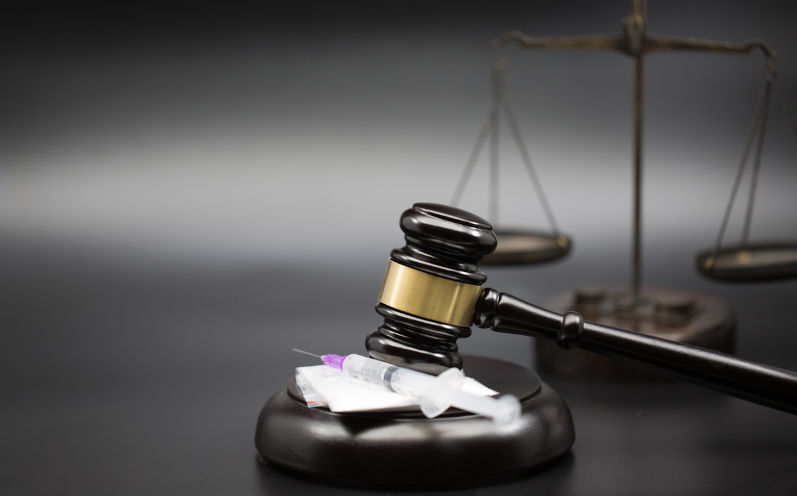Our drug laws don’t work. Why not change them?
October 31, 2024
If the upcoming drug summit is anything like its predecessor in 1999 then some invited people will present research results and facts which most policy makers ignore now. It will suggest ways in which laws might be altered beneficially. It might suggest changes to make our approach to drug use more humane and more effective than it is now. It might also improve public understanding of the realities in this area, not well appreciated at present. Policy change is more possible after a drug summit than before it. And, if policy change did occur, then that would be an improvement, for it is clear that present policy has failed.
In the time before the last drug summit the Wayside Chapel at Kings Cross, tired of delay, opened an injecting room illegally. After it opened there was one minister of religion inside running the injecting room, and another minister of religion (of the same church) outside attacking it. A deal was done, where by the Wayside Chapel was not prosecuted, the injecting room was closed, and the drug summit was promised.
One result of that summit was that the safe injecting room at Kings Cross was born. When the safe injecting room was opened, there were outcries from the usual suspects. Kings Cross business objections were understandable, but wrong. A resident of that area told me that people were no longer shooting up heroin behind her house because they had nowhere else to go, and she said to me that this was “The first time there were no used needles in my back lane.” There have been no deaths from heroin overdoses in the safe injecting room which has been a great success.
Present drug laws do not work. Millions of people use cannabis in spite of the law, drug use occurs at music festivals in spite of the law, and the laws have not prevented the widespread use of illicit substances. Illicit drugs are in every community, every suburb. Every high school child knows where drugs can be purchased. In fact, the community use of illicit drugs is increasing, and new, more powerful illicit drugs continue to appear - and will continue to appear. This fact alone will require a careful and considered response from policy makers. Many teenagers have contempt for the police – not least because at least a few policemen have been involved themselves with illicit drug selling. There is a disconnect between the actual use of drugs, the language our political leaders use, and the laws we have.
Parents are worried about their children. Properly, they want to keep their children safe. They worry about safety in the streets. They worry about “stranger danger”. And they worry about exposure to hard drugs. Their worries are understandable. And some politicians exploit those worries. They magnify them in pursuit of votes. To win the support of voters, they promise harsher laws and longer prison sentences. These do not work.
Most of our drug problems do not involve hard drugs. Yes – the use of hard drugs is often catastrophic for an individual, but the community—wide problems from “hard drugs” are relatively small. Hard drugs cause only a minority of the awful effects.
Alcohol, a legal drug, causes most damage. Alcohol is associated with disease, with much domestic violence, with much crime, with many crimes of violence, with unemployment, with vehicle crashes, with personal misery, with economic costs, with alcoholism among the young. An old cartoon had two red nosed older men sipping whiskey as they lamented a famous cricketer’s use of cannabis. So there is a generational disconnect too.
Besides alcohol, which is still a major problem, there have been tobacco and compound analgesics which caused much disease and death. The analgesics have disappeared; tobacco use has declined – and with it some of the predictable disease which tobacco causes.
Why do we behave this way with all the evidence of the ineffectiveness of current laws? Well, what we do now makes parents more comfortable. They think something effective is being done. They think, mistakenly, that their children are safer because of present laws. What we do is irrational as regards what we know about drug use, but rational in political terms. What we do allows political parties to appeal to voters. Parties follow an established path rather than initiating a necessary change.
Every drug “bust” is something to be applauded. We would be even worse off if those “busts” did not happen. But it does alter the reality that illicit drug use is increasing. Drugs which are not intercepted are still imported. Local production of illicit drugs is increasing. Successful drug “busts” do not justify the fact that almost all the resource we apply to this problem is to law enforcement and punishment. If our own children are affected, we want them to recover. We want treatment and rehabilitation resources. And we want them available immediately.
The summit will give us a chance to be more rational in our approach to drugs than we are present. Prohibition of alcohol use did not work in America, and prohibition of other drug use is not working here. People like psychoactive drugs, and will pursue them.
But the summit might come up with more sensible and realistic proposals. It will provide models for sensible political leaders to consider. More than that, it will provide a rational justification for what political leaders might want to do, and it might improve public understanding.
There would be objections to any proposal that comes from the drug summit. Of course there would. The objections would probably be wrong and unhelpful – more of the same just will not do. If the drug summit suggests change, parents would win. Their children would be safer. Police could concentrate more on other parts of their work. Society would be better.
Let us hope that the summit produces change.

